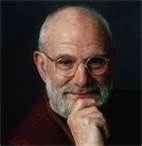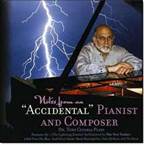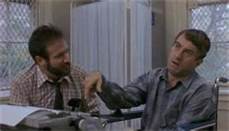Oliver Sacks

Dr. Oliver "Wolf" Sacks, CBE (born 9 July 1933), is a popular neurologist[2] who has sold a million books for each patient with severe mental and psychological conditions that he has "helped" with his almost scientific popular-documentary-bait methodologies. While the one or two patients that have benefited from his methods are doing relatively well, all things considered, the television exposure and book deals that he parlayed his methods into have been of extraordinary benefit to his fame and fortune. And in truth, the stories are quite compelling.
Career[edit | edit source]
Although there are literally millons of patients suffering from various mental and psychological conditions for whom his mostly anecdotal therapy is a useless approach, the few for whom it has seemed not to be useless have made for stories interesting enough to render that fact immaterial, at least to his bulging bank account.
Career Highlights[edit | edit source]
Awakenings[edit | edit source]
His greatest and most famous contribution to his field[3], Awakenings chronicles his work in the 1960s at Beth Abraham Hospital in the Bronx, in which he simply administered a very successful new drug whose invention and development he had nothing to do with to patients suffering from sleeping sickness. It is true that a man who can sell millions of books about waking a few people up by shoving pills he didn't invent down their lethargic throats must be quite a writer. And indeed, real clinicians have at least given him that credit - though they say he is a much better writer than clinician, so it comes across sort of bitterly. This book was so popular, in fact, that none other than Laverne De Fazio herself made a movie about it starring Mork From Ork and Travis Bickle.
The Man Who Mistook His Wife For a Hat[edit | edit source]
His other most popular work is the story he artfully called The Man Who Mistook His Wife For a Hat, which was such an amusing little neurological anecdote that it was made into an opera, as so many amusing little neurological anecdotes are these days. His patient was a gentleman whose brain did not properly process incoming visual information, so he was unable to distinguish his wife from the entry-way hat rack, which rack - for art's sake[4] - is not, it turns out, actually mentioned in the title. However, for some peculiar reason his brain would right itself and function properly as long as he was singing or humming. So he adopted this skill of walking around singing little ditties about everything he was seeing and doing, which made his wife wish she could shove the hat rack he mistook for her up his incessantly humming ass. Upon meeting the man and studying his condition, Sacks realized that the fact that the man's success in life was attached to music could make Sacks popular and famous in a way previously unknown in his profession. Despite there being exactly zero evidence that Sacks ever helped the man at all, as the man had devised his own coping mechanism, and arguably all Sacks ever did was study him so he could write a book and sell the rights to the story to artsy composer Michael Nyman, Sacks became an instant pop celebrity, at least as neurologists go, and to the anger and frustration of actual neurology clinicians everywhere.
Musical Minds[edit | edit source]
Continuing on his whole "music therapy" money-making scheme, there is also the anecdote about the drummer with Tourettes Syndrome, who seems to be able to control his tics only when he is playing the drums. Although his drumming is quite brilliant, the reality is that the tic that characterizes his TS is an arm-flailing that is not really dissimilar to his drumming action, so the actual therapeutic aspect of the music[5] is called into question. This of course presented Dr. Sacks with no qualms about using the poor man and others like him who seem to be using music to correct some brain flaw in a lucrative documentary called Musical Minds[6], which, though riveting, is even less scientific than it sounds.
Other matters where Dr. Sacks has taken undue advantage of his notoriety[edit | edit source]
The Old Man and the Music[edit | edit source]
A YouTube video went somewhat viral in April of 2012 of an old man in a nursing home who was not strictly completely catatonic and unresponsive except when a little Satchmo was forced into his ears through headphones, but for the dramatic effect Dr. Sacks describes it this way. With the headphones on he is amazingly transformed into a slightly less catatonic blathering unintelligible 95-year-old barely able to remember a Cab Calloway song from when he was 54. Because this appeared to demonstrate the miraculous brain-fixiness of music, Dr. Sacks was able to arrange for his handsome mug to appear on the video - effusively describing what we can clearly see without a single scientific word about it - even though it was none of his own doing or business.
The Lightning Bolt Piano Man[edit | edit source]

In 1994, a surgeon had a cardiac arrest after being struck by lightning through his telephone. The Twilight Zone motif was not done with him there, however - this dreadfully boring surgeon with zero interest in music before this event fully recovered from it and suddenly became a world class musician, desperately longing to hear and play complex piano concertos every moment he wasn't... oh... saving someone's life on the operating table. Now, Oliver Sacks had absolutely nothing to do with this event. Rod Serling was no less a factor in it than Dr. Sacks. Despite this, the story has garnered the neurologist much fame and attention merely for the effusive manner in which he tells it, short on science but long on spiritual beaming - even more such attention, in fact, than the by-now practically mythical surgeon's Chopin performances ever have for him.
He is a very handsome man, though[edit | edit source]
Despite the fact that his career is based entirely on other people's mental and psychological problems and how they are coping with them all by themselves, Oliver Sacks continues to make money off of them as a handsome, clever and well-spoken neurologist whose main practice is writing best-sellers about other people's mental and psychological problems and how they are coping with them all by themselves.
Footnotes[edit | edit source]
- ↑ So-called for real by geneticist Tom Shakespeare, who is obviously just jealous of Sacks' success...
- ↑ And certainly the only popular neurologist
- ↑ Anecdotal literature, we mean, not neurology
- ↑ Or something
- ↑ Well, the drumming, more accurately
- ↑ Which his detractors have called "a high-brow freak show", but again - jealous much?
- ↑ Unfortunate proof, incidentally, that you can't pick your super-power.

